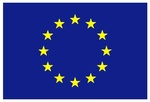Project „Steps to Freedom”
In 2010, the LCHR in cooperation with the UNHCR and several NGOs from Central and Eastern Europe has started implementation of the project „Steps to Freedom. Monitoring Detention and Promoting Alternatives to Detention of Asylum Seekers in Latvia, Lithuania, Estonia, Slovakia and the Czech Republic."
Project partners
Latvian Centre for Human Rights, Latvia (beneficiary)
Lithuanian Red Cross Society, Lithuania (co-beneficiary)
Jaan Tõnissoni Instituut, Estonia (co-beneficiary)
League for Human Rights, Slovakia (co-beneficiary)
OPU – Prague (The Organisation for Aid to Refugees), the Czech Republic (co-beneficiary)
UNHCR Regional Office for the Baltic and Nordic Countries, Sweden (co-beneficiary)
Duration of the project
18 months (1 July 2010 – 31 December 2011)
Overall objective
Assess the implementation of the Community legislation concerning detention of asylum seekers and to promote alternatives to detention of asylum seekers during the asylum procedure in several states of the Baltic and Central European region receiving asylum seekers from the eastern migration route.
Specific objectives
1.Provide comparative evidence of the implementation of the Community legislation and international standards concerning detention of asylum seekers;
2.Elaborate best models and national strategies on alternatives to detention of asylum seekers during the asylum procedure;
3.Facilitate exchange of information and cooperation between NGOs and other stakeholders, including national authorities, NGOs, the UNHCR, relevant EU institutions and the Council of Europe, on the implementation of the Community legislation concerning detention of asylum seekers and promoting of alternatives to detention for asylum seekers;
4.Establish a network for cooperation between regional NGOs with a view to implementing further monitoring and advocacy activities in detention area and provision of feedback to the EU bodies;
5.Promote awareness at the European level on the need to develop a common understanding of interpretation of the grounds of detention, conditions of detention and provisions on alternatives to detention of asylum seekers during asylum procedure.
Project beneficiaries
National stakeholders: national asylum authorities, state border guard officials, judges and lawyers, representatives of NGOs, MPs and members of government;
European stakeholders: European Commission, FRA, European Asylum Support Office, Council of Europe, UNHCR, NGOs and lawyers’ organisations dealing with issues of detention of asylum seekers in states of the Northern, Eastern and Central Europe.
Activities
1.Monitoring visits to places of detention of asylum seekers and reception/accomodation centres to assess situation of asylum seekers and availability of alternatives to detention
2.Study visit to Sweden with participation of representatives of partner organisations and national authorities
3.International seminar and a study visit to Lithuania with participation of representatives of NGOs, national stakeholders and the UNHCR
4.National seminars with participation of UNHCR experts who will provide training in the issues of detention of asylum seekers and alternatives to detention to national stakeholders
5.National policy papers with recommendations to national and European stakeholders
6.Comparative policy paper with recommendations to national and European stakeholders
7.National policy briefs including the main findings nad recommendations from the comparative policy paper
8.International conference in Riga with participation of representatives of national stakeholders and NGOs from Latvia, Lithuania, Estonia, Slovakia and the Czech Republic and other states receiving asylum seekers from the eastern migration route as well as European organisations
9.Elaboration of advocacy strategy with a view to promoting sustainability of the project’s results
Project co-financed under the European Refugee Fund
http://ec.europa.eu/home-affairs/funding/refugee/funding_refugee_en.htm
Published: 2010-11-10
